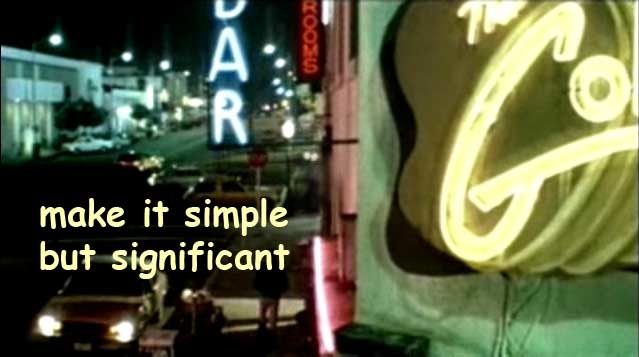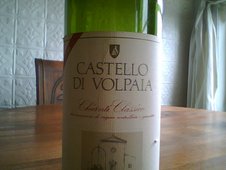Monday, April 9, 2012
"Mad Men" and Drinking, Season Five: There Are Other Drugs
The crew at Sterling Cooper Draper Pryce held onto the 1950s and held back the 1960s for as long as they could. They kept their haircuts, their conservative suits, their drinking habits and reflexive sexism and racism intact, despite growing signs of restlessness in the country to which they attempt to sell product.
But with Season Five of "Mad Men," which debuted on March 25 after a 17-month-long hiatus, the younger generation and repressed minorities are through being patient. It's the summer of 1966. Riots are commonplace. Blacks demand equal rights. Women, too. Everyone, really. With his new, swinging, French-Canadian wife on his arm, Don Draper, now 40, is starting to look a little old, and a little lost. And he knows it. He refers to himself jokingly, but knowingly, as "The Man" in one episode. The beatniks who razzed him about working in advertising in 1960 didn't bother him. But the hippies will.
As for his elder partner Roger Sterling, he seems from another, now all-but-lost world completely. He flails about trying to find his place in the new world order of SCDP, where Don has a black secretary, the hiring of a Jew is no longer an eyebrow-raiser but a commonplace, and clients ask for endorsements by The Rolling Stones.
The preferred forms of intoxication in the mid-late '60s are also changing. Booze isn't cool. It's old school. Weed is where it's at. We see it partaken of in the opening double episode "A Little Kiss," and in the second episode (though called Episode 503) "Tea Leaves." In the former, the band hired to play at Don's surprise birthday party smoke a joint on the balcony, and are joined by account man Ken Cosgrove, who apparently is liable to recite poetry when under the influence. In the latter, marijuana is everywhere backstage at a Stones concert. Don passes, but the increasingly smarmy media head Harry Crane, whoring after youth culture and trying to stay hip, takes a toke. I predict as the season moves on, liquor will continue to take a back seat to other drugs.
Even within the confines of SCDP, regular imbibing is somewhat frowned upon. The disapproval comes mainly from the ambitious and hardworking Pete Campbell. Pete has as big a chip on his shoulder as ever, and is growing increasingly impatient with the lax behavior of senior partner Roger Sterling, who last season nearly capsized the firm by letting his one account, Lucky Strike, get away. (He smokes Camels now.)
With Don cutting back, Roger is the biggest drinker in the office now. Some clients, like Mohawk Airlines, still "love his pickled guts," much to Pete's chagrin. But the more Roger drinks, Pete makes clear, the less Campbell likes it. "No more drinks!" he cries in frustrating in "A Little Kiss." Pete clearly does not intend to sail the company down a river of vodka. At the same Mohawk lunch where Roger down two "lethal" Martinis in cut time, Pete barely sips his. He does open a bottle Champagne when Mohawk is signed, but that's for ceremony's sake.
"When is everything going to get back to normal," asks Roger at one point. Answer: never, Roger.
As Roger is downing the most drinks, Roger gets the best liquor lines. When Pete comes to announce that he has good news, he asks "drinking good news?" "I had drinks with Mohawk," he tells Peggy in "Tea Leaves." "I sat down with two of them and, I swear, by the end I thought there were three." Of the two main execs at Mohawk, "I know Hank from the war. He likes vodka. And Jack likes Jack." Roger keeps Smirnoff vodka and Chivas Regal in his office bar.
Beer is making regular appearances in the first few episodes—perhaps a signifier of the growing movement toward broader equality. Peggy drinks a ton of Rheingold at home in Episode 504, "Mystery Date." Joan, preparing for the return of her GI husband, Greg, buys some Schaefer. The rough new copywriter with the Jewish name and the Brooklyn accent, Michael Ginsberg, helps himself to a mug of beer at a bar after a client presentation. The sudsy refreshment stands in distinct contract to Don's whiskey neat.
Other stray liquor proclivities: Henry Francis, Betty's white-shoe husband, opts for a brandy at the end of the day in "Tea Leaves." Joan asks for a Gin Fizz at an Italian restaurant where her husband, mother and in-laws all opt for wine—a sign, perhaps that she, too, with her traditional ideas of marriage, motherhood and happiness, is falling behind the times. But she does manage to kick her awful hubby out the door in episode three, so maybe it's not all darkness for her in the future.
Labels:
mad men
Subscribe to:
Post Comments (Atom)



No comments:
Post a Comment